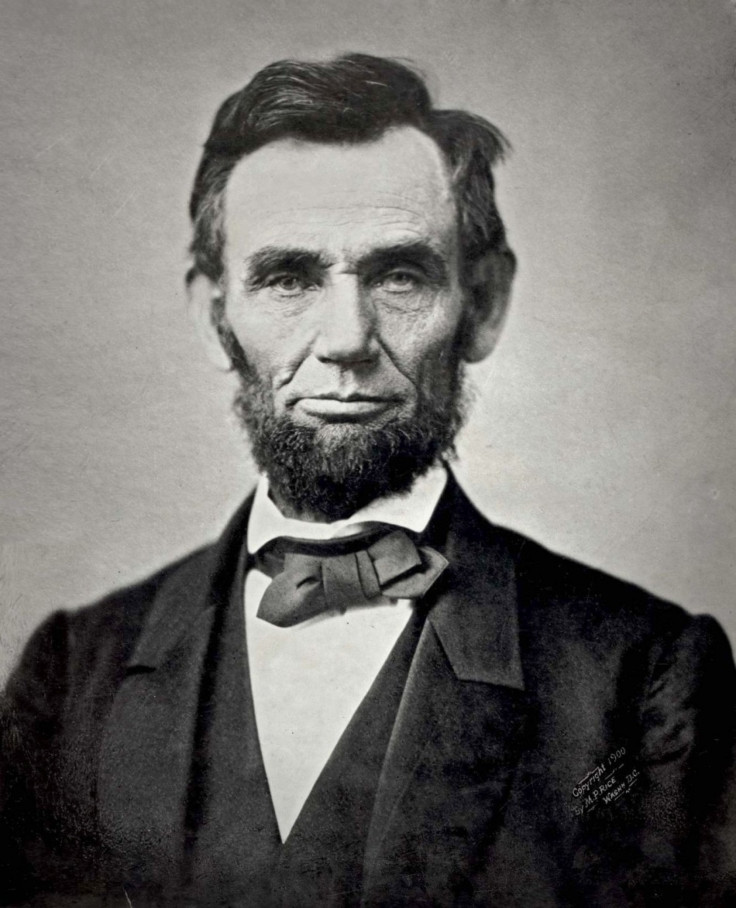Lincoln Death Report Found: Doctor's Brandy And Water Treatment Couldn't Save President Abraham's Life After Assassination

Researchers found a report written by the first doctor to treat Abraham Lincoln after John Wilkes Booth shot the president in the back of the head at Ford's Theater in Washington, D.C., in 1865.
Charles Leale, an army surgeon, sat 40 feet from Lincoln when Wilkes fired his fatal shot. The doctor saw Booth flash a dagger, and assumed the president was stabbed.
I commenced to examine his head (as no wound near the shoulder was found) and soon passed my fingers over a large firm clot of blood situated about one inch below the superior curved line of the occipital bone, Leale reported. The coagula I easily removed and passed the little finger of my left hand through the perfectly smooth opening made by the ball.
Leale ordered brandy and water for Lincoln, who laid comatose in the theater. The doctor was 23 years old at the time, and only six weeks into his medical career. The treatment was suitable for the time, though it seems rather brutish and pointless now.
As soon as I removed my finger a slight oozing of blood followed and his breathing became more regular and less stertorous, he wrote. The brandy and water now arrived and a small quantity was placed in his mouth, which passed into his stomach where it was retained.
The researchers from the Papers of Abraham Lincoln found the document in a box stashed at the National Archives, for probably 147 years. It was stored in the surgeon general's 1865 correspondence, under L for Leale.
What's fascinating about this report is its immediacy and its clinical, just-the-facts approach, said Daniel Stowell, director of Papers of Abraham Lincoln, according to the Daily News. There's not a lot of flowery language, not a lot of emotion.
The group strives to find every paper written by or two Lincoln, with this being the latest big catch for the researchers.
Leale's report include a description of the moments following Lincoln's assassination.
I then heard cries that the 'President had been murdered,' which were followed by those of 'Kill the murderer' 'Shoot him' etc. which came from different parts of the audience, Leale wrote. I immediately ran to the Presidents box and as soon as the door was opened was admitted and introduced to Mrs. Lincoln when she exclaimed several times, 'O Doctor, do what you can for him, do what you can!'
Leale's account provides a tick-tock of ensuring events and reaches into the next morning, with the Surgeon General helplessly probing the gunshot wound with little hope of saving the President.
At 7:20 a.m. he breathed his last and 'the spirit fled to God who gave it,' he wrote.
© Copyright IBTimes 2025. All rights reserved.





















